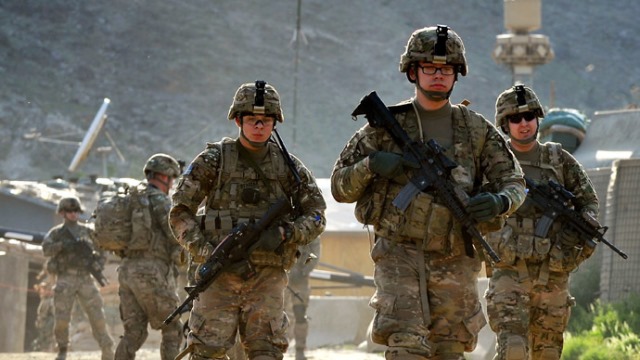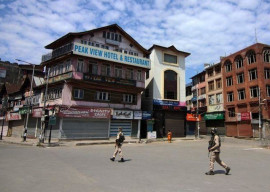
NEWS DESK:
Since the "global war on terror" declared by former US President George Bush following al-Qaida's September 11 attacks, the wars that the US armed forces have launched and participated in have displaced at least 37 million people, according to a report published by The Guardian.
According to the reort's author, David Vine, among the 37 million displaced people are eight million refugees and asylum seekers and 29 million displaced within Afghanistan, Iraq, Libya, Pakistan, the Philippines, Somalia, Syria and Yemen.
The report compared the displacement of 37 million people equivalent to removing all the residents of Texas and Virginia combined or almost all of Canada.
The true total displaced by the US post-9/11 wars may be closer to 48-59 million - more than the total of England.
"The US government is not responsible for the displacement of 37 million people alone. The UK government and other US allies share some responsibility too, as well as the Taliban, Iraqi Sunni and Shia militias, Syrian dictator Bashar al-Assad, the militant Islamic State (IS), al Qaida and other governments," the author states.
However, the US government is solely responsible for initiating (Afghanistan/Pakistan and Iraq), for escalating as a major combatant (Libya and Syria), for fueling through drone strikes, battlefield advising, logistical support and other military aid (Yemen, Somalia, and the Philippines).
The displaced people include: 5.3 million Afghans, 9.2 million Iraqis, 3.7 million Pakistanis, 1.7 million Filipinos, 4.2 million Somalis, 4.4 million Yemenis, 1.2 millions Libyans, 7.1 million Syrians.
The study highlighted that if the focus is only on the 14.5 million displaced in Afghanistan and Iraq, the total would still exceed displacement in any war since 1900, except the second world war.
Following the US wars, displacement has affected people economically, psychologically, socially and emotionally. Host communities and countries have faced burdens hosting the displaced people. The movement of these people has led to Europe blocking the entry of refugees and places like Lesbos and Greece trapping people in dreadful conditions.
Since 2001, the US government has admitted around 348,000 refugees from the entire Middle East, while Turkey hosts 3.9 million refugees and other displaced people.
Statistics show that one in seven people in Lebanon and one in 15 people in Jordan are refugees. Furthermore, Canada has resettled more than 10 times as many refugees per capita as the US.
Under US President Donald Trump's administration, refugee admissions have fallen to nearly zero, following a ban on admitting refugees and other immigrants from many Muslim-majority countries.
The war in Vietnam, Cambodia and Laos resulted in the US government admitting more than 800,000 south-east Asian refugees.
Despite many assumptions that refugees are a financial burden on host countries, German leaders believe that refugees are an important new workforce given the aging population in the country. Germany received almost 900,000 refugee asylum applications in 2015.
The report highlighted the importance of supporting at least 250,000 refugees per year for at least the next decade. It said the US must significantly increase support for refugees upon their arrival in the country, adding that the US must double its contributions to at least $5 billion.
"If the US does not reckon with the catastrophic effects of its wars - and if we don’t fundamentally question the legitimacy and efficacy of war, given 19 years of disastrous results - there will be no end to the endless wars. The endless wars, in turn, will continue to displace millions more than the 37 million who have already fled home," it read.




































































COMMENTS
Comments are moderated and generally will be posted if they are on-topic and not abusive.
For more information, please see our Comments FAQ